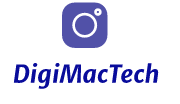Introduction
Computer programming is at the heart of nearly every technology we use today. Whether it’s the software on your phone, the website you browse, or the games you play, programming is the magic behind it all. But what exactly is computer programming, and how can you get started? In this article, we will guide you through the basics of computer programming, key concepts, popular languages, and some practical tips for beginners.
What is Computer Programming?
Computer programming is the process of designing and building an executable computer program to accomplish a specific task. Programming involves tasks such as analysis, generating algorithms, profiling algorithms’ accuracy, and resource consumption, and implementing algorithms in a chosen programming language (coding).
Key Concepts in Programming
Let’s break down some fundamental concepts you need to grasp when starting with computer programming:
- Variables and Data Types: Variables store data that your program can manipulate. Common data types include integers, floats, strings, and booleans.
- Control Structures: These include loops (for, while) and conditionals (if-else) that control the flow of your program.
- Functions: Functions (or methods) are reusable blocks of code that perform a specific task. They help keep code organized and modular.
- Data Structures: These include arrays, lists, and dictionaries, which allow you to store and organize data efficiently.
- Syntax: The rules that define the combinations of symbols that are considered to be correctly structured programs in a language.
Popular Programming Languages
There are numerous programming languages, each with its strengths and typical applications. Here’s a look at some of the most popular:
| Programming Language | Use Case |
|---|---|
| Python | Web development, data analysis, artificial intelligence, machine learning |
| JavaScript | Web development, front-end and back-end (Node.js) |
| Java | Enterprise applications, Android app development |
| C++ | System/software development, game development |
| Ruby | Web development, particularly with the Ruby on Rails framework |
| Swift | iOS and macOS application development |
Steps to Get Started with Programming
Getting started with programming can be intimidating, but following these steps can make it manageable:
- Choose a Programming Language: Start with a language that’s beginner-friendly like Python or JavaScript.
- Set Up Your Environment: Install necessary software like code editors (VS Code, Sublime Text) and language-specific compilers or interpreters.
- Learn the Basics: Understand the fundamental concepts listed above. There are many free resources online such as Codecademy, Coursera, and freeCodeCamp.
- Practice Regularly: Consistency is key. Solve coding challenges on platforms like LeetCode or HackerRank.
- Build Projects: Apply what you’ve learned by working on small projects. This can be anything from a simple calculator app to a personal blog.
- Seek Feedback: Join coding communities (Stack Overflow, GitHub) to get feedback and collaborate with others.
Common Mistakes to Avoid
Here are some common pitfalls beginners should be wary of:
- Skipping the Basics: It’s tempting to dive into advanced topics, but a strong grasp of the basics is essential.
- Not Practicing Enough: Programming is a skill perfected with practice. Make sure to code regularly.
- Avoiding Debugging: Learning to debug is crucial. Don’t be discouraged by errors; they are an integral part of the learning process.
- Learning Too Many Languages at Once: It’s better to be proficient in one language than to have a superficial understanding of many.
Resources for Further Learning
There are countless resources available for those who wish to delve deeper into computer programming:
Conclusion
Understanding the basics of computer programming opens up a world of opportunities. Whether you’re looking to develop mobile apps, create websites, or analyze data, the fundamental concepts discussed above will serve as your foundation. Happy coding!
